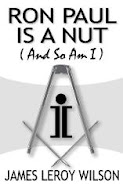Got a call from an old friend
We used to be real close
Said he couldn't go on the American way
Closed the shop, sold the house
Bought a ticket to the West Coast
Now he gives them a stand-up routine in L.A.
Billy Joel grew up in the 1950's and 60's. What was his conception of the American Way? Two things:
1) Owning a shop.
2) Owning a home.
This brings to mind something that Jeannette Rankin, the first woman in Congress and the only person to vote against both of our World Wars, said at age 91 to Dick Cavett in 1972:
When I went to school, all the young men were planning on the independent life, the doctor, lawyer, store keeper, farmer, something. Today, they're asking for jobs. They're planning to get with a big company, and conform to that job… Now, I live in the pioneer West, and we never conformed. We did what we pleased. And today you have to conform. And as long as men have to hold their jobs, they aren't free. And women aren't free."
Billy Joel's lyrical friend's concept of the "American Way" was, if nothing else, the "independent life;" at least he had a shop he could close, and by selling his house he had the means to pursue his dreams.
I fear that the modern concept of the "American Way" has forsaken both the "independent life" of working for oneself instead of a corporation (or non-profit organization), and the means to pursue one's dreams. Only the home ownership part of the "American Way" is left, and that is saddled by mortgages and other debt.
Billy Joel and Jeannette Rankin were both on to something. Joel may have perceived the "American Way" as an undesireable bourgeois culture, but at least it was a nation of shop owners, not corporate drones. Rankin saw the men of her youth as having dreams of doing what they wanted and being of independent means. In other words, it wasn't just earning a good income, but being self-employed, that was once part of the American dream. And that has been lost.
What strikes me is that Joel's "friend" in the song had the American Dream at both ends, the "independent life" of self-employment and home ownership, and the freedom to pursue his own dreams. What he rebels against is being a conformist. The American Way, to him, is conformity. To Rankin, it was living an independent life.
I think the real American dream is to merge the best of Joel's and Rankin's visions. The "American Way" or the "American Dream" has to do with:
1) economic independence, which is different from merely gathering a large income;
2) the freedom to pursue one's dreams, even if they seem odd or non-conformist.
To seek not wealth, but sufficiency, and to seek not revolution, but just the unfolding of one's dreams, is to be an American. To possess a desire to suppress through force either entreprenurial initiative, or counter-cultural behavior, is to be an anti-American.
The American Way isn't about economic and social "rights," it is about economic and social freedom.




That was some great insight. I am glad to see Billy Joel, a Long Islandr :) , be used and seen in that light. Now I just may go to listen that song. Now everytime, I think of Billy Joel I will think of this column. Thank you.
ReplyDelete